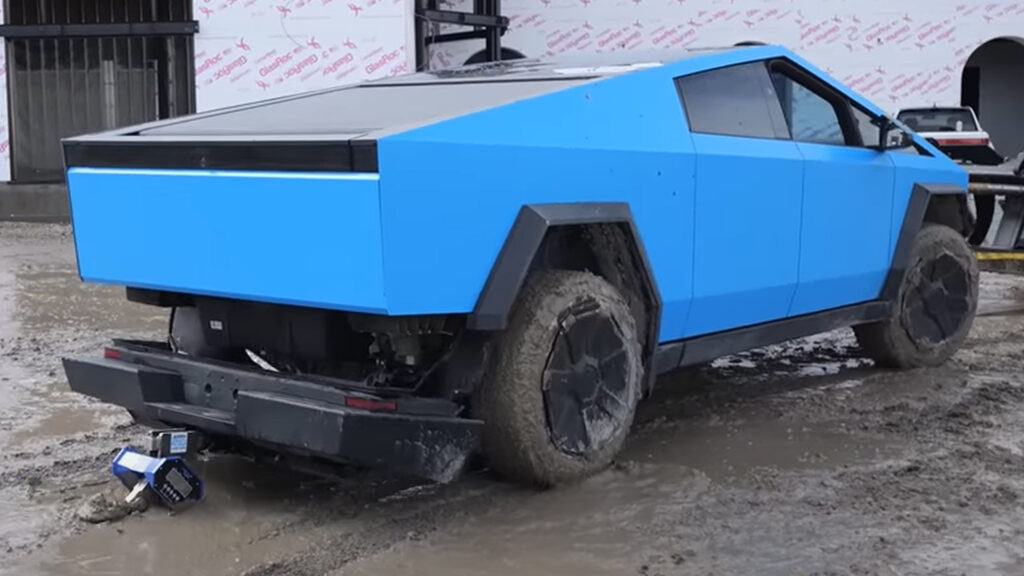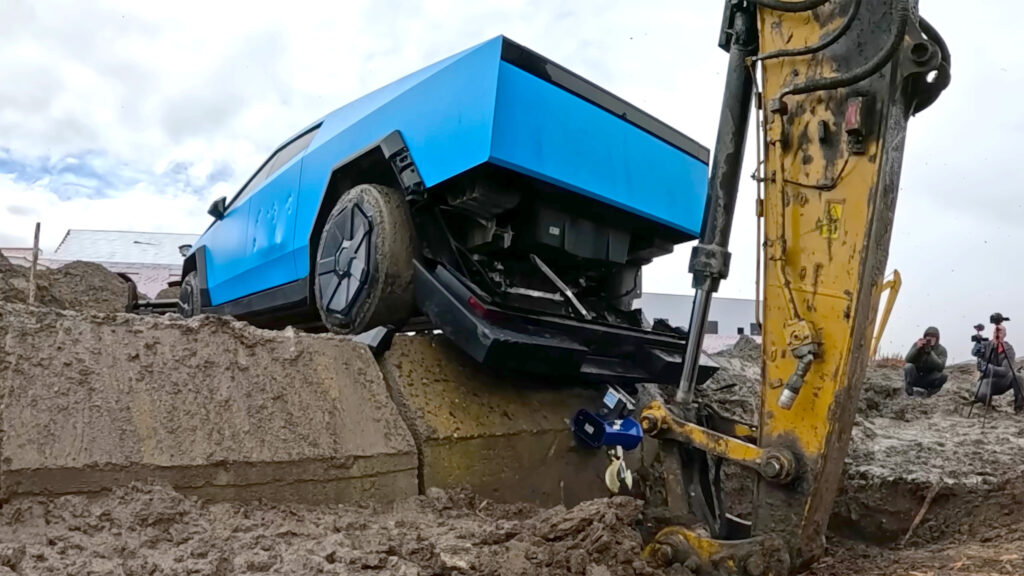- During the towing weight hitch stress test, the Cybertruck’s frame broke clean off.
- The same test was performed on an old Ram, and it withstood even more pressure.
- Tesla has built the Cybertruck’s lightweight frame from cast aluminum to reduce weight.
Last year, YouTuber WhistlinDiesel made headlines after snapping the frame of his Tesla Cybertruck during one of his infamous durability tests. Fast forward to today, and another YouTuber, also a Cybertruck owner, decided to take it upon himself to see if Tesla’s electric truck is really as sturdy as it claims.
Unlike traditional pickup trucks that rely on solid steel frames, the Cybertruck is built with cast aluminum. Tesla received plenty of praise for pioneering the use of gigacasting technology in the automotive industry, but the choice to use a cast aluminum frame is starting to raise some concerns with each new test.
More: Eagle Cap Camper Snaps Ram 3500 Dually In Half, Mopar Refuses $17,000 Repair Bill
According to Tesla, the Cybertruck has a maximum towing capacity of 11,000 lbs (4,990 kg). To test how strong the frame really is, YouTuber JerryRigEverything attached a crane scale to measure the amount of force the hitch was subjected to. The force came from a massive excavator pushing down on the hitch.
Towing Capacity vs Tongue Weight
Something we need to stress (pun intended) here is that this test measures tongue weight, not tow capacity. Tongue weight refers to the downward force exerted by the trailer on the hitch, while towing tests evaluate how much weight the vehicle can pull in a horizontal direction. These are distinct stress tests, so comparing the two directly can be misleading. As many manufacturers point out, for ball-mounted hitches, the tongue weight is typically 10 to 15 percent of the total loaded trailer weight.

Back to the test, after sustained pressure, the hitch started to crack and, at just over 10,000 lbs (4,536 kg), it snapped completely. As if that weren’t bad enough, aluminum lacks a fatigue limit, meaning it becomes progressively weaker each time it’s stressed. Steel, on the other hand, doesn’t have this issue. This means that, at least in theory, Cybertrucks constantly towing heavy loads could potentially see their frames weaken over time—hardly ideal for a vehicle marketed as tough and durable.
Watch: Whistlin Diesel Snaps Tesla Cybertruck Frame In Viral “Durability” Test
Of course, as mentioned before, the weight in this test was applied downward, while most of the force from towing would be applied outward. This means the Cybertruck shouldn’t have any major issues if it keeps its trailer load under capacity.
JerryRigEverything suggested that hitting a large pothole at, say, 80 mph (129 km/h) with an 11,000 lb load could potentially generate enough force to damage the Cybertruck’s frame. However, this is purely theoretical, and we have to assume Tesla accounted for such scenarios when developing the vehicle and determining its capacities
Nevertheless, for comparison, the team also tested an old Ram 2500, which survived a 10,500 lbs (4,763 kg) tongue weight load without so much as a hiccup. So yeah, Tesla might have a bit of work to do when it comes to making the Cybertruck a true workhorse.



